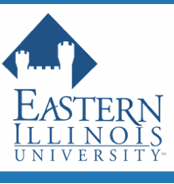The Rural Allyship Challenge: A multi-tiered Safe Zone Solution
Preferred Delivery
In-Person
Length of Presentation
50 minutes
Start Date
20-10-2023 12:00 PM
End Date
20-10-2023 12:50 PM
Document Type
Poster
Abstract
This session provides an overview of a multi-tiered Safe Zone program for faculty, staff, and students that takes into consideration the intersectional identities of rural, economically disadvantaged students, as well as the educational resources needed for trained participants to be successful allies to the LGBTQIA+ community. Participants will learn about the creation and implementation of this type of tiered-program, as well as the challenge, successes, and future that this more complex method of allyship and advocacy offers to institutions.
Description
LGBTQIA+ students at rural colleges often face challenges to their sense of safety, inclusion, and belonging. As a community college, diversity, equity and inclusion initiatives for the LGBTQIA+ population must be holistic in nature, in large part because our LGBTQIA+ population often consists of non-traditional students, first-generation students, students who embody multiple aspects of the rainbow umbrella simultaneously, and students with economic challenges. These students with intersectional identities often require more advocacy and supportive resources in order to achieve a sense of inclusion and belonging than those with higher levels of privilege and support.
In order to make excellence inclusive at our institution, Lake Land College has implemented a robust and purposeful Safe Zone program. The 4-tiered Safe Zone program was conceptualized and implemented to address the increasing need for support and resources for LBGTQIA+ students in a rural area community college. This program allows for 3 levels of staff/faculty engagement at the Safe Zone Ally, Advocate, and Trainer levels, with an introductory student level, entitled “Safe With Me.” With this program, faculty and staff are provided with either a general understanding of the LGBTQIA+ community in order to take on a supportive role or can move into an advocacy role, in which they are provided with a higher level of resources and knowledge. In addition, students themselves are empowered to be allies, with particular emphasis on heteronormativity, transgender rights, and being a supportive ally.
The goal of this presentation is to provide an overview of the rationale for and successes of this type of program, its scalability to diverse institutions, and what the future of this type of program promises for ourselves, as well as its viability for other various educational environments. The target audience includes college student services and faculty, high school leaders, and student organization advisors
Creative Commons License

This work is licensed under a Creative Commons Attribution-Noncommercial-No Derivative Works 4.0 License.
The Rural Allyship Challenge: A multi-tiered Safe Zone Solution
This session provides an overview of a multi-tiered Safe Zone program for faculty, staff, and students that takes into consideration the intersectional identities of rural, economically disadvantaged students, as well as the educational resources needed for trained participants to be successful allies to the LGBTQIA+ community. Participants will learn about the creation and implementation of this type of tiered-program, as well as the challenge, successes, and future that this more complex method of allyship and advocacy offers to institutions.


Speaker Information
Kim Hunter, Director of Student Success Services, Lake Land College
5001 Lake Land Blvd; Mattoon, IL 61938
khunter@lakelandcollege.edu
217-234-5287
Bio: Kim Hunter is the Director of Student Success Services at Lake Land College. She has served as the Chair of the college’s Inclusion, Diversity, Equity, and Belonging Committee for 3 years and is a Safe Zone Trainer. She previously served as the college’s International Studies Program Coordinator.
Katie Parrish, Sociology Faculty, Lake Land College
5001 Lake Land Blvd; Mattoon, IL 61938
Kparrish@lakelandcollege.edu
217-234-5438
Bio: Katie Parrish is a Sociology faculty member at Lake Land College. She has been teaching sociology in higher education institutions since 2008 and has been employed at Lake Land College, teaching sociology, since 2015. She has served on the college’s Inclusion, Diversity, Equity, and Belonging Committee since 2016 and is a Safe Zone Trainer.